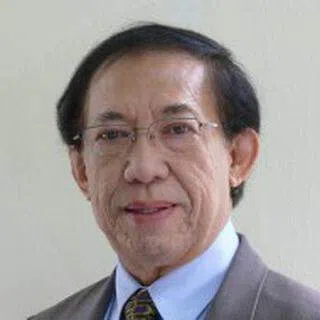Does Prabowo have a new strategy on the South China Sea?
Indonesian President Prabowo Subianto has sparked debate after implementing several seemingly contradictory policies last year. Does he have a coherent plan for Indonesia? Or is it too early to criticise and evaluate his approach? ISEAS academic Leo Suryadinata tells us more.
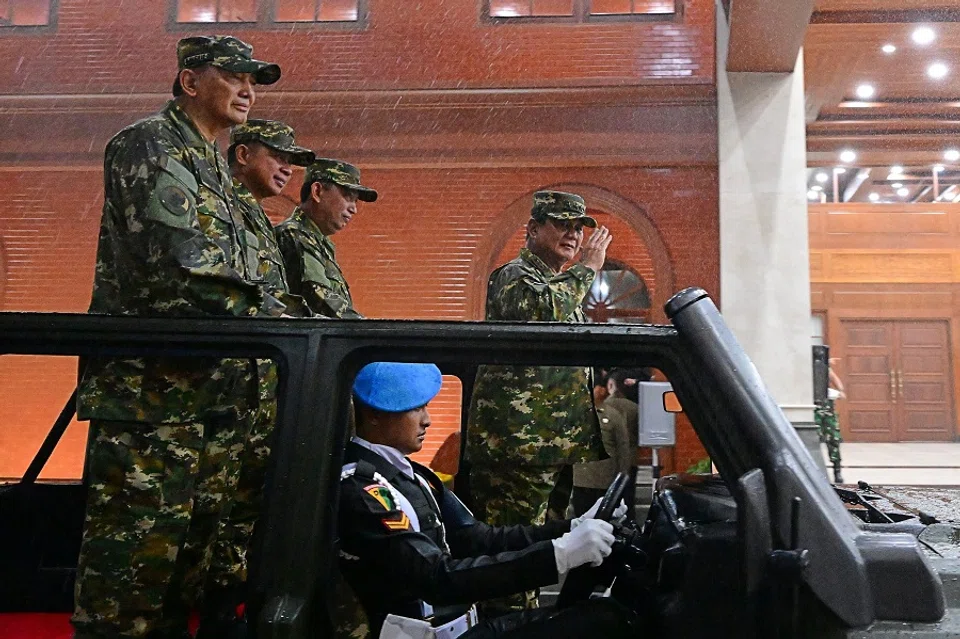
On 9 December 2024, General Agus Subiyanto, commander-in-chief of the Indonesian National Armed Forces, announced a large-scale reshuffling of 300 senior officers: 143 from the Army, 92 from the Navy, and 65 from the Air Force. This move was primarily aimed at consolidating the power of Indonesian President Prabowo Subianto. Among these senior officers, some were close associates of former President Joko Widodo (Jokowi). Now that Prabowo has officially assumed the presidency, he is positioning his trusted allies in key positions or promoting generals previously sidelined by Jokowi. These individuals are expected to be unwaveringly loyal to Prabowo.
One example is Major General Kunto Arief Wibowo, previously the commander of the Regional Command III. During the 2024 presidential election, he wrote an article warning that military personnel must remain neutral, which led to his reassignment by Jokowi. Now, Prabowo has appointed him as commander of the Joint Regional Defense Command I. Analysts believe this role requires someone Prabowo trusts, as it pertains to the Natuna Sea. Prabowo seems to have a new strategy regarding the South China Sea.
Observers speculate that Prabowo has made concessions to China regarding these areas in exchange for Chinese support, particularly in economic and technological assistance. However, Indonesia takes a slightly different view.
The South China Sea remains a pressing issue
Analysts suggest that Prabowo had already made concessions on the South China Sea issue in September 2024. According to a China-Indonesia joint statement in English released by China, Indonesia and China agreed to jointly develop “areas of overlapping claims”. This implied a shift in Indonesia’s previous stance to one that recognised China’s nine-dash line. However, shortly thereafter, Indonesia’s Ministry of Foreign Affairs issued a statement in Indonesian, clarifying that the joint statement does not imply Indonesia’s recognition of the nine-dash line. The statement also reiterated that China’s nine-dash line lacks legal basis under international law, is not recognised by the International Tribunal, and is inconsistent with the 1982 United Nations Convention on the Law of the Sea (UNCLOS). However, the statement did not explicitly criticise the wording of the China-Indonesia joint statement. These discrepancies show that both sides have diverging interpretations.
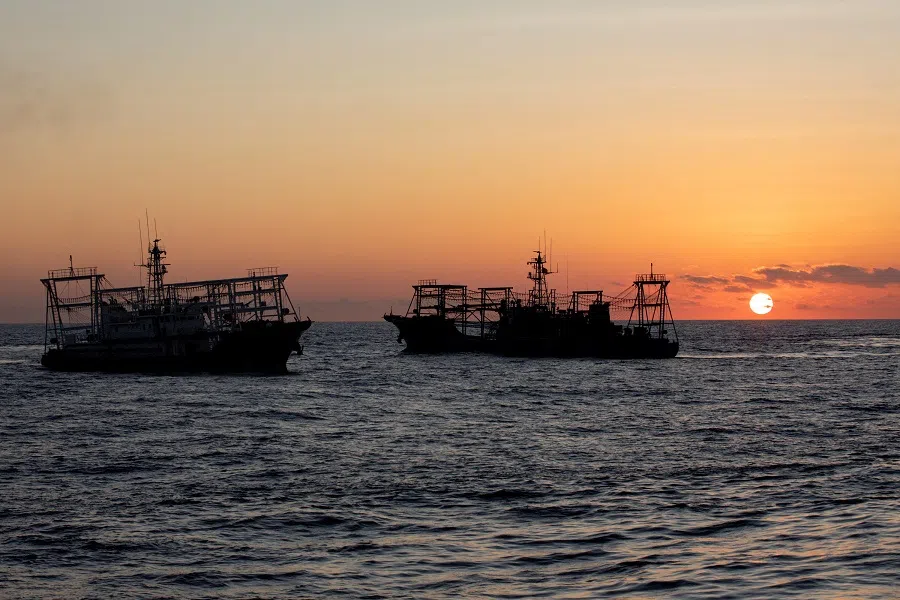
China believes that under the joint statement, Jakarta has reached a consensus with Beijing, and that both countries will jointly develop “areas of overlapping claims”. Observers speculate that Prabowo has made concessions to China regarding these areas in exchange for Chinese support, particularly in economic and technological assistance. However, Indonesia takes a slightly different view.
Prabowo may not have anticipated that doing so would be perceived as a shift in Indonesia’s stance on the South China Sea issue that affects the interests of ASEAN claimant states.
According to this view, Prabowo wants to show his willingness to cooperate with China without really having joint development in the “areas of overlapping claims”. This is due to the fact that in practice, any such development would require alignment with Indonesia’s current laws and regulations. Since Indonesia adheres to the United Nations Convention on the Law of the Sea (UNCLOS) and the 2016 ruling by the Permanent Court of Arbitration, it does not recognise the nine-dash line, meaning there are no “areas of overlapping claims” with China. The proposed joint development project would conflict with existing Indonesian laws, making it unfeasible. However, Prabowo may not have anticipated that doing so would be perceived as a shift in Indonesia’s stance on the South China Sea issue that affects the interests of ASEAN claimant states.
Notably, after China released the joint statement, Prabowo gave a speech affirming his commitment to safeguard Indonesia’s sovereignty and prevent foreign violations. Yet he also remarked that he would always try to look for the possibility of a partnership, as partnerships are better than conflicts. He appeared to hint to China that Indonesia would not compromise on sovereignty issues, while simultaneously signalling to the US not to provoke conflicts in the South China Sea.
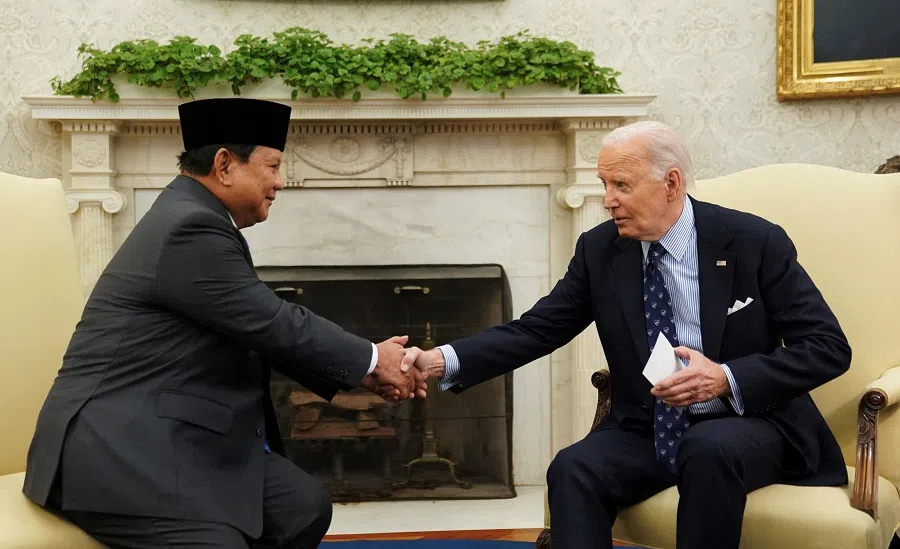
Following his visit to China, Prabowo also visited the US, where a joint statement was issued between the two nations’ leaders. On the South China Sea issue, the joint statement did not mention the nine-dash line but did make a reference to the 2016 Permanent Court of Arbitration ruling under UNCLOS, which invalidated the nine-dash line. However, China does not recognise this ruling.
Prabowo is thus likely to maintain a good relationship with Trump. However, in his diplomatic approach, Prabowo is expected to continue with a non-aligned policy that avoids taking sides in the US-China rivalry.
Prabowo playing both sides amid geopolitical uncertainty
Prabowo has a personal connection to the US, having received military training there, and seems to hold a favourable view of Donald Trump. When Trump won the US presidency, Prabowo was one of the first world leaders to call and congratulate him, addressing him as “sir”. Trump, in turn, was delighted and bestowed high praise on Prabowo’s capabilities. When Trump complimented his English, Prabowo reportedly replied, “All my training is American, sir.” Prabowo is thus likely to maintain a good relationship with Trump. However, in his diplomatic approach, Prabowo is expected to continue with a non-aligned policy that avoids taking sides in the US-China rivalry.
When it comes to defence, Indonesia conducts large-scale annual military exercises with the US. However, no similar joint operations with China exist. Additionally, the US provides training to enhance Indonesia’s maritime patrol capabilities, and much of Indonesia’s defence equipment is sourced from Western countries, including the US. Therefore, Indonesia has close military and defence ties with the West, particularly the US. However, Indonesia also maintains strong economic relations with China.
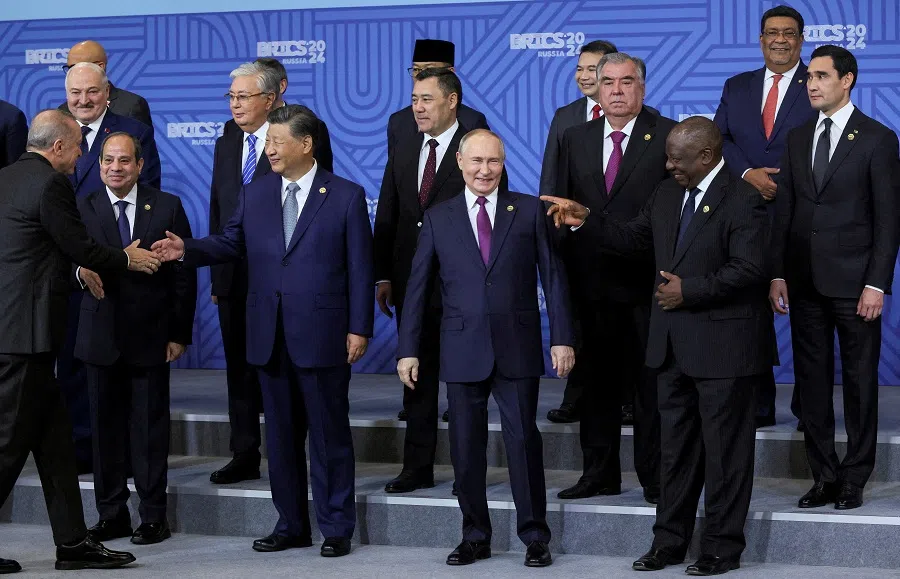
The BRICS group, led by Russia, India and China, is a coalition of so-called “developing countries” that aims to break away from US economic dominance by promoting trade outside the US dollar to facilitate freer and more profitable commerce. Prabowo recently announced that Indonesia is now officially a full member of BRICS, expressing a desire to serve as a “bridge between developed and developing nations” . Because Indonesia prides itself on its non-aligned stance, it also applied last year to join the Organisation for Economic Co-operation and Development (OECD), a group of developed nations led by the US. However, its application has yet to be accepted.
Indonesia is a trade-surplus country with the US, exporting minerals, agricultural and fishery products, electronics, and labour-intensive goods. Trump has previously warned BRICS members that their exports to the US could face a 100% tariff, a significant threat to Indonesia, as losing the US market would heavily impact its national revenue. However, analysts believe that if Trump were to impose such sanctions, it might drive Indonesia closer to China. Given Indonesia’s strategic importance in the Asia-Pacific region, it is unlikely that Trump would take such drastic measures.
Inconsistent political approach?
Some analysts note that Prabowo, despite being democratically elected, exhibits tendencies that are less democratic. For instance, in December last year, he proposed that direct elections for local governors and mayors should be abolished, suggesting instead that regional councillors elect and appoint these officials. He argued that this approach would reduce national expenditures and improve efficiency. The proposal sparked heated debate. While many political party members welcomed the idea, pro-democracy advocates criticised it as undemocratic. They argue that the government should work to improve the existing system of direct elections for local officials to strengthen Indonesia’s democracy, rather than remove elections.
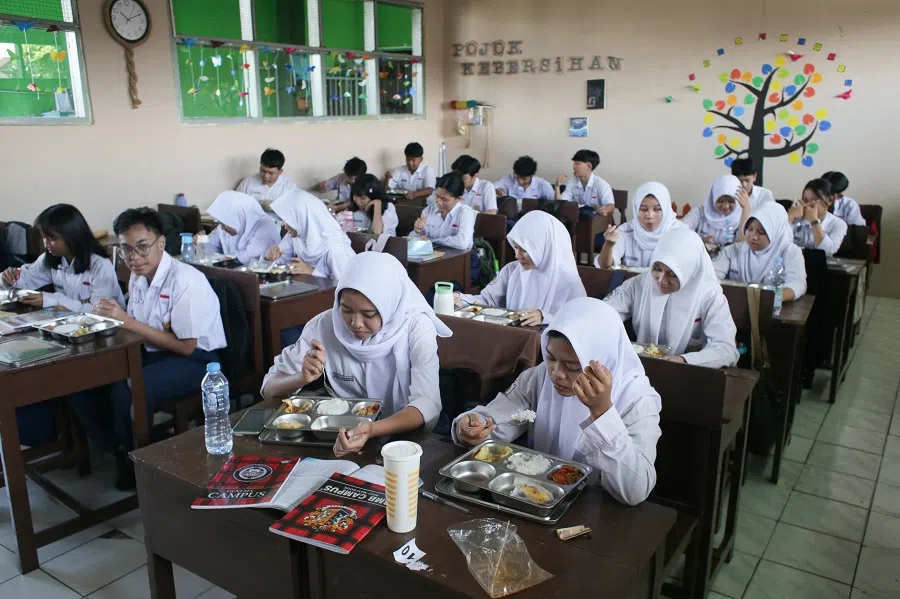
Prabowo’s leadership style is also distinctly military. Upon assuming office, he organised a military-style retreat for his cabinet ministers to deliver instructions. He expressed his vision of transforming Indonesia into a technologically advanced and powerful nation, emphasising that national strength requires a healthy and well-educated population.
To this end, he introduced a programme providing free and nutritious lunches for students and pregnant women, which was implemented on 6 January 2025. He has also prioritised improving Indonesia’s education system, particularly higher education and scientific research, aiming to position Indonesia as a developed nation by 2045. Achieving these goals will require substantial funding, so Prabowo has set an ambitious target of increasing Indonesia’s economic growth rate from 5% to 8%. Achieving this goal is challenging, and he has tasked his ministers with making it a reality.
Although Prabowo is a diplomatically-focused president, he understands that domestic, political and economic stability are crucial to securing his position.
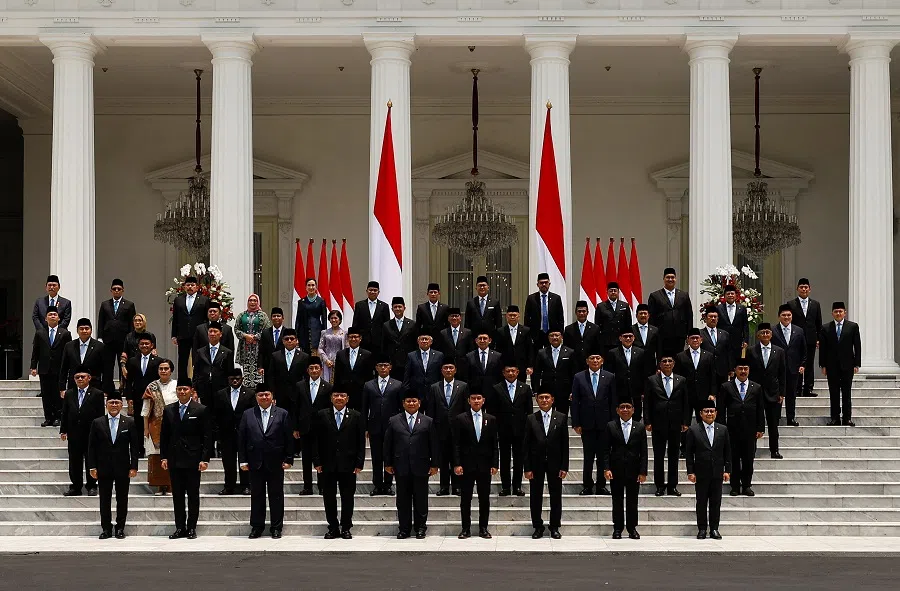
However, Prabowo’s cabinet is oversized, comprising over 100 ministers and deputy ministers with varying levels of competence. Shortly after taking office, some ministers have performed poorly. For instance, Minister of Villages and Development of Disadvantaged Regions Yandri Susanto misused his position and violated regulations by using an official letterhead for invitations to his mother’s birthday celebration. Similarly, Minister of Human Rights Natalius Pigai complained about insufficient departmental funding, openly requesting a huge budget of 20 trillion rupiah (US$1.2 billion). The bloated cabinet not only drains national resources but also hampers efficiency.
Too early to judge Prawobo’s performance?
Although Prabowo is a diplomatically-focused president, he understands that domestic, political and economic stability are crucial to securing his position. He has thus taken steps to strengthen his leadership and tasked his ministers with increasing state revenue. Many business leaders have cooperated with Prabowo, providing funding needed by the government. In an effort to boost state revenue, he recently proposed granting amnesty to corrupt officials if they return stolen funds to the state and express genuine remorse. This proposal has drawn significant criticism. Additionally, his Coordinating Minister for Economic Affairs announced a plan to raise the value-added tax (VAT) from 11% to 12%, which also faced backlash. As a result, the government decided to maintain the VAT at 11%, with the 12% rate only applying to luxury goods.
However, Prabowo has been in office for less than 100 days. While the economy remains relatively stable, the challenges ahead are significant, and it is still too early to fully evaluate his administration’s performance.
This article was first published in Lianhe Zaobao as “普拉博沃就职后的印尼政治和外交”.
